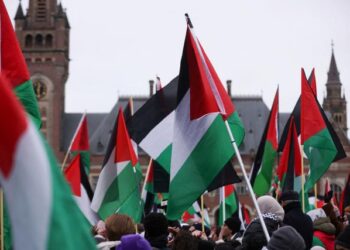Human Lives Human Rights: Patagonia is the name of a large region on the Latin American continent, which is located at the southern end of South America, a territory shared by the countries of Chile and Argentina. It has a population of nearly two million people.
Patagonia, with an area of 900 thousand square kilometers is known as the end of the world and has a very pleasant climate and fertile region.
On the west and south, Patagonia is bounded by the Andes and on the east by low plains. In the Chilean part, this region starts from the south of the city of Puertomont and from south, starts from the region that belongs to Argentina, the Colorado River.
But what has caught the world’s attention in recent years is not the pleasant climate, but the growing migration of Israeli citizens to the area and the purchase of property by Israelis.
While the fertile geographical conditions of a remote area such as Patagonia are fascinating to few in the world, they have always been appealing to Israelis and the Jewish state, because in the initial draft of the formation of the state of Israel, which was presented to the Rothschild Jewish family, Patagonia was mentioned as the land of the Jewish state.
The temperate climate of this land, along with its rich mines and small population, is one of the things that made Patagonia desirable for the early Zionists. In fact, even before Palestine, Patagonia was in the eyes of the founders of the Jewish state.
However, the reasons why Palestine was preferred over Patagonia, are as follows:
The land of Palestine had a very important factor for the early Zionists and the Jewish Agency. None of the other alternatives such as Patagonia, which were considered by the Zionist leaders, had this factor.
This factor was the constant subject of the Zionists, the realization of the Promised Land and the Temple of Solomon in the land of Palestine, which for many Jews around the world had a religious and ideological aspect and encouraged them to migrate to Palestine.
In particular, the land of Palestine has many plus points than Patagonia, such as a favorable climate and a fertile land. Hence, from one hundred to seventy-five years ago, Palestine was preferred over other places such as Patagonia.
But in recent years, the issue of Jewish immigration to Patagonia has once again been on the agenda of the Israeli government, the inheritor of the early Zionists and the Jewish Agency, has been protested by politicians in Argentina and Chile.
For example, Chilean senator Ohanito Thomas says that Israel seeks to use Patagonia as a haven for the world’s Jews. He also stressed that the Chilean government could not be indifferent to what was happening under the guise of terrorism, as thousands of Israeli reserve soldiers visited Patagonia regularly.
In recent years, Thomas has published reports, according to which the occupation of Patagonia has been on their agenda since the first Zionist summit, held in 1915 in Basel, Switzerland.
However, there are several reasons why the occupation of Patagonia has been again important for the Zionists:
- Israel’s strategic vacant position in the Middle East and the strategic deadlock that Tel Aviv is experiencing in the Middle East have led the Zionists to seek a viable alternative to the crisis that may one day force them to leave the occupied Palestinian territories. A suitable alternative, such as Patagonia, whose environment is not as dangerous as the Middle East, has a favorable climate and is a fertile land, as well as much larger than the Occupied Palestinian Territories. This point becomes even more significant when we know that the total area of the Palestinian territories, as well as the Golan Heights, which is currently in Israeli territory, is twenty-seven hundred square kilometers, which has no comparison to the area of nearly one million square kilometers of Patagonia.
- What adds to the Israel’s deadlock in the Middle East is the US policy of decentralization of the Middle East, as well as the dangers of Arab liberation groups such as Hezbollah and Hamas, which have been at loggerheads with Israel for the past 22 years.
- Another reason could be population saturation in Israeli territory. It is true that in recent years, the trend of reverse migration from Israel has intensified. In 2014, for example, 25,000 Israeli citizens applied to immigrate to Germany. But now, there are over 9 million people, living in an area of just over 20,000 square kilometers, which is very small for these people to live and work. Perhaps one of the main reasons for the non-stop Zionist settlements in the Palestinian territories is to gain more living space for their citizens. Therefore, it is important for Tel Aviv to add a large area of Patagonia to the Jewish lands to bring the saturated population of Israel there.
- Another reason for capturing Patagonia could be the same old policy of increasing the Jewish population in the world, which will certainly be challenged despite the small area of Israel and the reverse migration that exists at the same time as its population is saturated. Therefore, due to the fertility and size of Patagonia, the region is a very good option for increasing the Jewish population in the world.
This point becomes even more significant when we consider that France with an area of 640679 square kilometers has a population of over 66 million people, Germany with an area of 357386 square kilometers with a population of over 83 million people and the United Kingdom with an area of 130279 square kilometers with a population of over 54 million people.
So compared to these countries, if Israel succeeds in occupying Patagonia, it can solve problems such as lack of saturated living space, reverse migration, and the strategic bottlenecks that plague them in the Palestinian territories, for decades and even centuries, and perhaps forever. So, in every possible way to imagine, Patagonia is an attractive and desirable option for Israel.
















